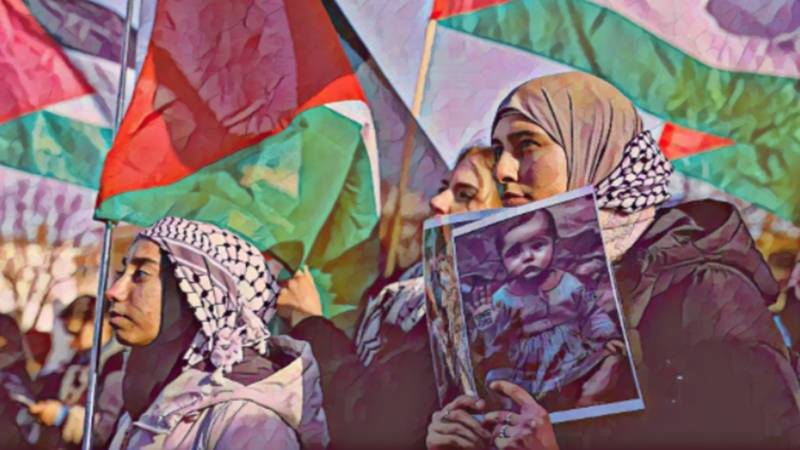
South Africa had the courage to accuse Israel of genocide and move a case against the state of Israel in the International Court of Justice (ICJ) in the Hague. Ironically no Muslim country claiming to be a champion of the Palestinian cause had the moral courage to do so. The ICJ’s recent ruling on this case, of huge world interest, has now ignited a fierce debate in the media, claiming that the ruling is woefully short of what was expected of the learned judges of the ICJ because it does not call upon Israel for an immediate ceasefire and does not accept that state of Israel is engaged in genocide in the areas occupied by the unfortunate Palestinians.
The first female judge of the ICJ, Julia Sebutinde of Uganda, opined that the dispute between Palestine and Israel was “historical and political” and hence beyond the jurisdiction of the court and went on to judge that the Israeli actions were “not committed with the necessary genocidal intent” – which left a bad taste in the mouth and according to legal experts the judge appeared to be deaf and blind to the sufferings and miseries of the people of Gaza.
Irrespective of the personal bias of some judges, the ICJ finally ruled on the case— as one of the six principal organs of the United Nations— and found that Israel must take action to prevent genocidal violence by its armed forces; “prevent and punish” the incitement to genocide; and ensure that humanitarian aid to Gaza is increased. The ICJ ordered that Israel must do everything within its power to prevent genocidal acts against Gazans. Such acts include, among others, deliberately inflicting conditions of life calculated to bring about Gazans' physical destruction, carried out with the intent to destroy the Gazan people.
The majority of the seventeen judges ruled that Israel should take steps to limit harm to Palestinians, preserve evidence, and submit a report within a month on all measures taken in response to the court’s order. The court also rejected Israel’s request to throw the case out. The judgment is not easy to accept or to analyze legally or politically.
All cases in the ICJ are to some extent political and the Judges sitting on the bench of the ICJ are influenced by their personal ideology and the prevailing political situation and conditions in their own country. Judge Julia Sebutinde of Uganda showed her personal bias. Uganda-Israel diplomatic relations were severed in 1976 when a passenger plane was hijacked by Palestinian militants and flown to the Entebbe airport in Uganda. The Idi Amin government welcomed, helped and facilated the hijackers before the daring raid by the Israeli commandos to rescue the hostages. Idi Amin ordered the killing of the Kenyans in Uganda because Kenya had helped the Israelis in the raid on Entebbe airport. Today Uganda and Israel enjoy close and fraternal relations and many Israeli companies in the field of construction, IT, communications and agriculture are playing a major role to help in the development of Uganda and there is also close cooperation between the two countries in defense related projects. Palestinians said the international Court let them down by failing to order a halt to the Israeli military offensive in Gaza, but they also described the proceedings as a victory which had inspired hope of accountability.
If nothing else, the ICJ ruling has sent a very strong signal to Israel that that the international community will not remain an idle spectator to the brutal actions of Israel that has already slaughtered about 30,000 Palestinians and made 1.8 million people homeless in the besieged Gaza strip and public opinion across the world today is that the USA is an active partner in this genocidal action of Israel.
One major problem is that the ICJ does not have any enforcement means or mechanism. Israel has always disregarded international law such as the ICJ 2004 ruling about the illegal Israeli occupation in the West Bank. There is absolutely no reason why the Israeli government will obey the dictates of the ICJ about the onslaught on Gaza. Also unfortunate is the fact that the ICJ did not demand that Israel adhere to a ceasefire. However, many experts on international law assess that a ceasefire would be necessary for Israel to abide by the provisional measures which the World Court ordered. Further, as a consequence of this South African victory at the ICJ, the odds are good that global pressure on Tel Aviv to adhere to a ceasefire will intensify. Despite this ICJ ruling not giving South Africa and others who are critical of Israel’s war on Gaza all that they wanted, it nonetheless constitutes a “serious call on Israel to take seriously its responsibilities to abide by the genocide convention,” explained John Feiffer, the director of Foreign Policy in Focus at the Washington-based Institute for Policy Studies, in an interview with The New Arab.
This ruling by the ICJ has also brought the US and other Western countries, who back Israel, under the microscope of public scrutiny. The Western powers will now face the weight of world opinion, international pressure and moral principles and they will have to pay a heavy price for their stance on this grave issue. It is also rather doubtful that the Western countries led by the US will deviate from their policy of total support and help to Israel.
“Western governments will come under greater public and political pressure to reconsider their unqualified support, and material support in particular, for Israel’s onslaught on the Gaza Strip. It also raises the possibility of legal exposure and individual criminal responsibility,” notes Mouin Rabbani, a political analyst and co-editor of Jadaliyya. The United States already declared that the South African case was 'meritless' and the judgement and its aftermath leave its position on the Palestine conflict ever more dubious.

